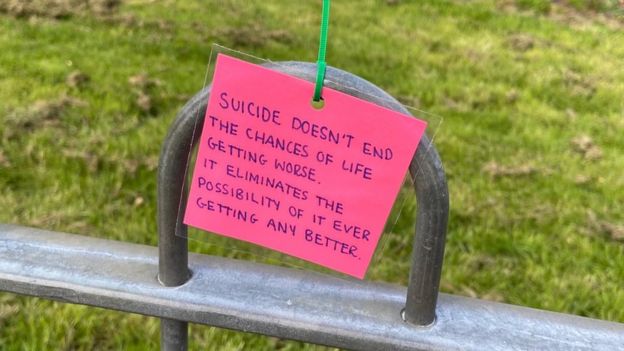Universal screening is fast, effective, and reimbursable

Overview
Each year, thousands of people in the #UnitedStates see a #healthcareprofessional weeks or days before they take their own lives. Signs and symptoms of #suicidalthoughts or #behaviors are often subtle and not immediately apparent to #healthcareproviders, so many #patients experiencing these symptoms are not screened. These interactions are missed opportunities to connect people to life-saving care.
#Healthcareproviders should ask all #patients, whether they exhibit signs of risk or not, if they are considering #suicide. Initial screening takes less than a minute, is covered by public and private insurers, and can effectively help identify individuals experiencing #suicidalthoughts or #behaviors.
#Suicide in the U.S., By the Numbers
- In 2020, nearly 46,000 people living in the #UnitedStates died by #suicide.
- About half of people who die by #suicide visit a #healthcareprovider within four weeks of their death.
- More than half of people who die by #suicide have no known #mentalhealthdiagnosis.
- A study of eight emergency departments showed that universal #suiciderisk screening helped identify twice as many people who were at risk for #suicide compared with the usual approach of screening #patients presenting with #psychiatric symptoms. The researchers also found that universal screening followed by evidence-based interventions reduced total #suicideattempts by 30% for the year in which the study was conducted.
#James Donaldson notes:
Welcome to the “next chapter” of my life… being a voice and an advocate for #mentalhealthawarenessandsuicideprevention, especially pertaining to our younger generation of students and student-athletes.
Getting men to speak up and reach out for help and assistance is one of my passions. Us men need to not suffer in silence or drown our sorrows in alcohol, hang out at bars and strip joints, or get involved with drug use.
Having gone through a recent bout of #depression and #suicidalthoughts myself, I realize now, that I can make a huge difference in the lives of so many by sharing my story, and by sharing various resources I come across as I work in this space. #http://bit.ly/JamesMentalHealthArticle
Order your copy of James Donaldson’s latest book,
#CelebratingYourGiftofLife:
From The Verge of Suicide to a Life of Purpose and Joy
www.celebratingyourgiftoflife.com
#Patients who are at risk for #suicide don’t always show it
- #Suicide is rarely caused by a single factor. Most current screening practices focus on #mentalhealthconditions as a primary indicator of #suiciderisk, yet more than half of people who die by #suicide do not have a prior #mentalhealthdiagnosis. A wide range of factors can contribute to #suiciderisk, many of which are not evident in health records or may not be voluntarily disclosed by #patients. These factors may include individual and family history; socioeconomic circumstances; access to lethal means, including #firearms and medications; and barriers to accessible and affordable #mentalhealthcare, including inadequate insurance coverage for services and a lack of #mentalhealthcareprofessionals.
- Individuals exhibit suicidality—which includes #suicidalthoughts, plans, deliberate #self-harm, and #suicideattempts—differently. Not all individuals self-disclose that they are experiencing #suicidalthoughts or #behaviors. People may also express symptoms of suicidality or #mentalhealthconditions differently, depending on their cultural background, #gender, or even personality. Understanding the complex constellation of #suiciderisk factors and warning signs is challenging. Providers can misinterpret symptoms—or lack thereof—and underdiagnose or misdiagnose #patients.
Universal screening is more effective than current practices
- Universal screening identifies more people experiencing suicidality; connecting them to care reduces #suicideattempts and deaths. Asking a few direct questions can help ensure that all individuals experiencing #suicidalthoughts are identified and connected to care. In fact, a study of universal screening in emergency departments found that #healthcareproviders identified nearly twice as many patients for #suiciderisk than they would have if they did not screen everyone. Another study of emergency departments found 30% fewer total #suicideattempts over a year among #patients who received universal screening and evidence-based follow-up care than among #patients who were not identified through universal screening.
- Talking about #suicide does not increase risk. Some #healthcareproviders avoid asking about #suicide out of a belief that talking about #suicide may trigger #suicidalthoughts or #behavior. However, studies show that #suiciderisk screening is safe and is not associated with increased suicidality. Further, directly communicating with #patients about #suicide is critical to identifying individuals experiencing #suiciderisk and increasing the likelihood that they will receive treatment.
Universal screening in practice
Parkland Health & Hospital System in Dallas is one of the country’s largest public hospital systems, treating more than 1 million #patients annually. In 2015, Parkland was the first health system in the U.S. to implement a universal #suicide screening program in its facilities. Among the #adult and #pediatric populations screened that year, 96% did not report symptoms that would suggest they were at risk for #suicide and 97% warranted no further action from their #healthcareprovider. However, the screening protocols did identify elevated #suiciderisk in about 2.3% of #patients seeking nonpsychiatric care who would not have been recognized if universal screening had not been implemented. These findings reinforce other research suggesting that a significant number of people experiencing #suiciderisk move through our hospitals and health systems undetected.
Call to action
Health systems, hospitals, urgent care centers, #doctors’ offices, and other providers should implement universal screening as part of routine health exams to quickly and effectively identify more people who are thinking about #suicide. Universal screening should be part of broader comprehensive #suicideprevention and intervention efforts to ensure that people experiencing suicidality are identified, appropriately assessed, and connected to follow-up care and treatment.
If you or someone you know needs help, please dial #988, call the #NationalSuicidePreventionLifeline at 800-273-8255, or text HOME to 741741 to reach a Crisis Text Line #counselor.





